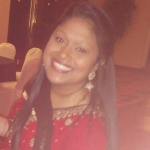SAJA@20: Newsmakers
This post is part of a series of profiles for the South Asian Journalists Association (SAJA), a non-profit journalism organization celebrating its 20th anniversary with a national convention on October 11th, 2014. For more details, please click here.
The South Asian American Digital Archive, home to more than 1,800 unique items, is the only organization in existence systemically collecting the histories of South Asian Americans.
One of the innovator’s behind the Philadelphia-based nonprofit is Samip Mallick. He said SAADA creates a more inclusive society by giving South Asian Americans a voice through documenting, preserving, and sharing stories that represent their unique and diverse experiences.
 Mallick, who grew up in Detroit after his parents emigrated from India, is the executive director, president and co-founder of SAADA. His day-to-day role consists of “figuring out what needs to be done and making it happen.”
Mallick, who grew up in Detroit after his parents emigrated from India, is the executive director, president and co-founder of SAADA. His day-to-day role consists of “figuring out what needs to be done and making it happen.”
Founded in 2008, with an initial investment of their own time, resources and expertise, Mallick said him and colleagues Michelle Caswell and Jennifer Dolfus Ford registered a website and set out to build a digital collection. Mallick said they were inspired to do so because “our community’s histories have been overlooked.”
“Our community’s histories could be lost,” he added. “But [SAADA’s mission is] to ensure that South Asian American histories are preserved and protected.”
On the heels of its 20-year anniversary, the South Asian Journalists Association will host an all-day conference on Oct. 11 in New York City, where Mallick will participate as a panelist for his first-ever SAJA convention.
Though Mallick does not identify as a journalist, he said “working with journalists has been important to the organization.”
Furthermore, he said he wants journalists to see SAADA as a useful resource for them to use when writing stories that relate to the South Asian American community, because Mallick defined digital archiving as “a way for a community that has been overlooked to have its history heard.”
With a small staff and a network of volunteers, SAADA focuses on the history of a community rather than genealogies or personal histories, such as popular commercial websites like Ancestory.com.
“Documenting the past and present ensures the stories of our community are available to the future, so they know where they came from.” Mallick said.
He also emphasized the importance of “knowing and being connected to the past.”
Mallick went on to say that the digital archives of SAADA link the past to the present, especially from the initial wave of South Asian American immigrants, who left their homelands to start a new life in the “land of the free,” during the late 1800s.
Mallick explained how SAADA’s archives include stories from the 1923 U.S. Supreme Court decision that barred South Asians from the U.S., to the post-1946 era when fewer than 100 immigrants a year were permitted into the country, to the Immigration and Nationality Act of 1965, which “opened the door for South Asians to enter in larger numbers.”
Anandibai Joshi, who is the first Indian woman in the U.S. to earn a medical degree in 1886, is one of many immigrant stories Mallick recalled. She graduated from the Women’s Medical College of Pennsylvania, now Drexel University College of Medicine.
With a goal to make SAADA a sustainable institution that will serve the community for decades to come, it is Mallick’s belief that through digital archives, such as SAADA’s, history will “inspire discussion about our community’s role in the future.”
In addition to archiving histories, the nonprofit makes their digital archives easily accessible to anyone, Mallick said.
Having initially completed a Bachelor’s degree in Computers Science at University of Michigan College of Engineering, Mallick returned to complete his Master’s of Science in Library and Information Science at University of Michigan College of Engineering, to later pursue his interest in digital archiving. He has also done graduate work in Ancient Indian History at Jawaharlal Nehru University in New Delhi, India.
Follow SAJA and SAADA on Twitter.
[divider]
 Subrina Singh is a passionate young writer. After completing her degree in all things Indian at Stony Brook University, she is now pursuing her Master’s Degree at Columbia University. More recently, she has become committed to using her experience with mental illness to help better the mental-health awareness within the South Asian community. Subrina enjoys writing, reading and drinking Starbuck’s Passion Tea Lemonade while singing Bollywood hits of the Golden Era. Follow Subrina on Twitter for her reactions to Pretty Little Liars every Tuesday night!
Subrina Singh is a passionate young writer. After completing her degree in all things Indian at Stony Brook University, she is now pursuing her Master’s Degree at Columbia University. More recently, she has become committed to using her experience with mental illness to help better the mental-health awareness within the South Asian community. Subrina enjoys writing, reading and drinking Starbuck’s Passion Tea Lemonade while singing Bollywood hits of the Golden Era. Follow Subrina on Twitter for her reactions to Pretty Little Liars every Tuesday night!




